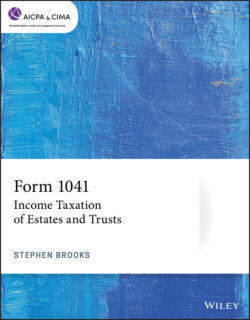Читать книгу Form 1041 - Stephen Brooks - Страница 29
На сайте Литреса книга снята с продажи.
The law governing the trust In general
ОглавлениеThe law that governs the administration of a particular trust is generally determined by the jurisdiction designated in the trust, or absence such a designation, by the law of the jurisdiction with the most significant relationship to the matter at issue.35 This generally means the state law of the state in which the trust is subject to administration. Many states have adopted the Uniform Trust Code (2000) (UTC) as their governing law in one form or another. The UTC represents an effort to create a uniform model of the law of trusts. Another source of reference, particularly in areas not addressed by local law, is the Restatement (Third) of Trusts. The restatement is a treatise published by the American Law Institute, which summarizes the common law; that is, the law as developed by court decision rather that statutory law. The restatement attempts to resolve conflicts where they may exist among different jurisdictions, and also provides guidance if existing law does not address a particular issue.
The Uniform Principal and Income Act (UPIA36) is another statute that affects the administration of both trusts and estates. The purpose of the UPIA is to provide procedures by which fiduciaries administering trusts and estates account for receipts and payments to principal and income of a trust or estate (also known as fiduciary accounting).
Finally, the UPIA deals with guidance in regard to the exercise of fiduciary investment decisions. The UPIA has been adopted in 44 states and the District of Columbia. Other states have adopted parts of the act, but not the entire act. The approach under UPIA allows fiduciaries to use modern portfolio theory to guide investment decisions and requires risk versus return analysis. As a result, a fiduciary's investment performance is evaluated based on the performance of the entire portfolio, rather than individual investments.
